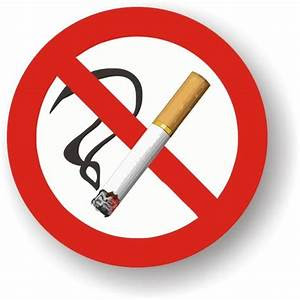when your parents were young, people could buy cigarettesand smoke pretty much anywhere - even inhospitals! Ads for cigarettes were all over the place. Today we're more aware about howbad smoking is for our health. Smoking isrestricted or banned in almost all publicplaces and cigarette companies are nolonger allowed to advertise on TV, radio, andin many magazines.
Almost everyone knows that smoking causes cancer, emphysema, and heartdisease; that it can shorten your life by 10years or more; and that the habit can cost asmoker thousands of dollars a year. So howcome people are still lighting up? Theanswer, in a word, is addiction. 
Smoking is a hard habit to break becausetobacco contains nicotine, which is highlyaddictive. Like heroin or other addictivedrugs, the body and mind quickly become soused to the nicotine in cigarettes that aperson needs to have it just to feel normal.

Smoking is a hard habit to break becausetobacco contains nicotine, which is highlyaddictive. Like heroin or other addictivedrugs, the body and mind quickly become soused to the nicotine in cigarettes that aperson needs to have it just to feel normal.
People start smoking for a variety ofdifferent reasons. Some think it looks cool.Others start because their family membersor friends smoke. Statistics show that about9 out of 10 tobacco users start before they're18 years old. Most adults who startedsmoking in their teens never expected tobecome addicted. That's why people say it'sjust so much easier to not start smoking atall.
There are no physical reasons to startsmoking. The body doesn't need tobacco theway it needs food, water, sleep, and exercise.And many of the chemicals in cigarettes, likenicotine and cyanide, are actually poisonsthat can kill in high enough doses. The body is smart. It goes on the defensewhen it's being poisoned. First-time smokersoften feel pain or burning in the throat andlungs, and some people feel sick or eventhrow up the first few times they try tobacco.
The consequences of this poisoning happengradually. Over the long term, smoking leadspeople to develop health problems like heartdisease, stroke, emphysema (breakdown oflung tissue), and many types of cancer- including lung, throat, stomach, and bladdercancer. People who smoke can develop skinproblems like psoriasis (a type of rash), andare more likely to get wrinkles. Also, theyhave an increased risk of infections likebronchitis and pneumonia.
Many of these diseases limit a person'sability to be normally active, and they can befatal. In the United States, smoking isresponsible for about 1 out of 5 deaths. 

Staying smoke-free will give you a whole lotmore of everything - more energy, better performance, better looks, more money in your pocket, and in the long run, more life to live! 

Adil Derouachi 1SEG2 🤗

No comments:
Post a Comment